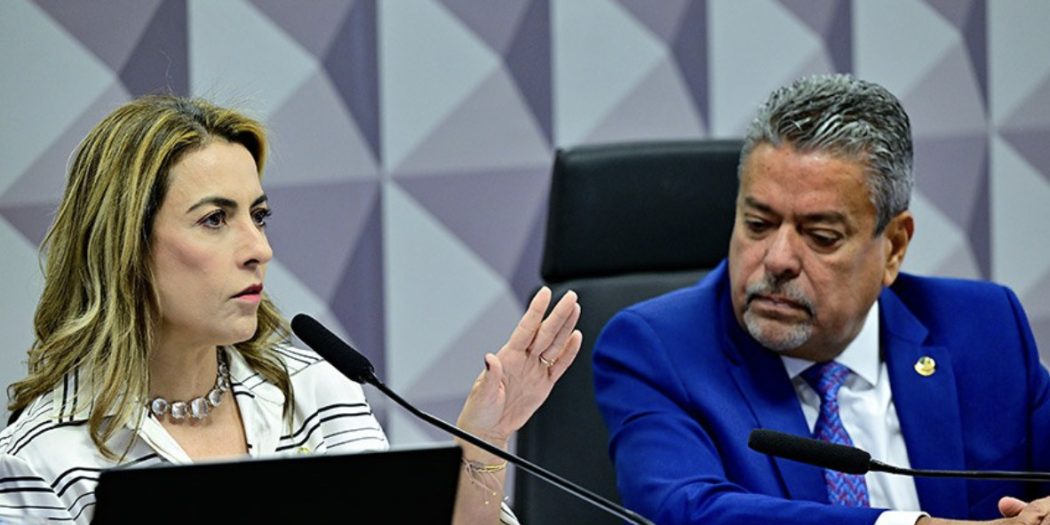
Ricardo Assis – SBC Noticias Brazil
The CPI’s rapporteurs are demanding a shock to the system and reset of the governance, regulation, and enforcement of Brazil’s online gambling sector. Ricardo Assis, Editor of SBC Noticias Brazil declares that all regulatory conditions the Bets regime face scrutiny.
A series of radical reforms, penalties and criminal enforcements have been proposed by the Senate’s Commission Inquiry (CPI) evaluating the economic and social impacts of the Bets Regime.
Just 19 weeks since the CPI commenced its evaluation, led by Senator Soraya Thronicke (Podemos–MS) and Dr Hiran Gonçalves (PP–RR), the rapporteurs have submitted their recommendations to the Senate.
The CPI was established to evaluate the economic liabilities and social threats of Brazil legalising online gambling since 1 January 2025.
The inquiry heard testimonies from operators, stakeholders and whistleblowers on wide ranging topics from fraud and match-fixing to money laundering, advertising malpractice and the absence of consumer safeguards.
Of significance, the inquiry hit national headlines after testimony concerning Virginia Fonseca, a social media influencer with over 50 million followers, who is accused of misleading advertising and acting as a financial beneficiary of unlicensed operators.
As reported by SBC Notícias, the CPI’s final report calls for 16 indictments, targeting both individuals and entities. Fonseca, alongside influencer Deolane Bezerra, is named in connection with promoting illegal betting operators, with the report stating it was “unlikely” that Bezerra “ceased to be an effective partner and simply became a spokesperson.”
The report proposes the criminalisation of match manipulation in sports be signed into federal law. An action to be governed by the creation of a ‘National Sports Integrity Authority’, that will oversee the regulation of automated systems used by betting platforms.
Algorithms, the report noted, often operate without independent certification, making it “difficult for the bettor to assess the real risk involved.” A technical audit protocol is proposed, under regulatory supervision, to ensure transparency in how odds and promotions are determined.
The commission warns that betting platforms have become conduits for illicit financial activities. Evidence presented to the CPI outlined the use of fragmented transactions, third-party CPFs, untraceable crypto operations, and withdrawals routed through accounts tied to Brazil’s social welfare schemes. To counteract these abuses, the CPI has recommended data-sharing protocols between the Federal Tax Authority, COAF, and licensed operators, as well as regular financial audits.
Brazilian football, a key beneficiary of betting sponsorship, came under heavy criticism. Club executives admitted they lacked integrity departments and were often unaware of commercial terms involving gambling partners, with many deals brokered through intermediaries. The commission labelled this state of affairs “institutional omission” and “structural unpreparedness.”
Digital influencers, a core channel for consumer engagement, were described in the report as central players in normalising irresponsible betting behaviours. As such, affiliate contracts linking influencer revenue to user losses were described by the commission as “anti-educational and perverse.” The CPI has formally requested investigations into these arrangements by COAF and Receita Federal.
The report further urges an outright ban on online casino-style games, denouncing them as “online slot machines with exclusively deleterious characteristics,” while calling for extensive reform of betting advertising, including:
Additional proposals include embedding gambling addiction awareness and financial literacy into school curricula, alongside national prevention campaigns supported by the SUS, NGOs and “conscientious influencers.”
Despite being tabled, the report will not be voted on immediately. As SBC Notícias reports, several senators have called for more time to review its recommendations. CPI President Dr Hiran has since indicated that he will move to postpone the vote until the following week.
Political consequences now loom for Brazil’s fledgling Bets Regime. Last week, Finance Minister Fernando Haddad has backed a provisional measure to raise the GGR tax on licensed operators from 12% to 18%, as a measure to fill budgetary gaps of the PT government.
A pending tax hike underscores the government’s push for tighter fiscal and regulatory oversight, prompting a coalition of trade bodies to challenge a tax framework they argue imposes an effective burden exceeding 50%.
The publication of the CPI’s report and its pending vote bring a turbulent close to the first six months of the Bets Regime existence. With mounting headwinds of tax hikes, compliance demands and the threat of criminal sanctions, the competitive landscape of Brazil’s online gambling market is poised for reshaping in the second half of the year. The only certainty, it seems, is continued volatility of a fragile Bets market that has been radically transformed since its launch on 1 January.